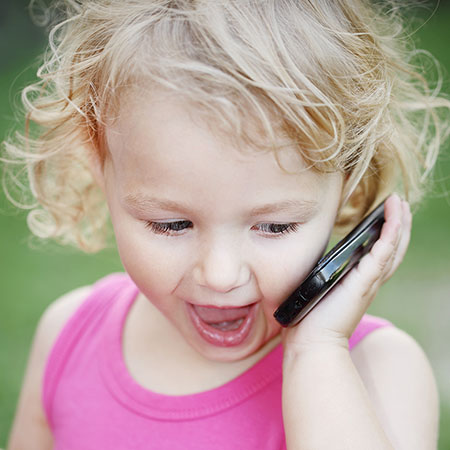During play, your child will learn from the senses and about feelings. He or she will learn to problem-solve, and to use creativity and language.
Senses
-
Feeling the textures of woolly blankets, smooth sheets, fuzzy bears and bumpy carpets
-
Seeing edges, bright colors, stripes and movement
- Becoming
aware of sounds and relating sounds to their sources
-
Smelling wonderful things or smelling stinky things and making faces
Feelings
- When a toy is very interesting, your baby feels content.
- When it is hidden, your baby gets curious or upset.
- If a toy stops working, a child may feel frustrated – then relieved after you wind it up again.
- It is not too early to talk or sign about those feelings. Take opportunities to
build conversations.
- You can
comment on feeling your child experiences. ("You are curious. Uh-oh, you are upset. That surprised you.")
Problem-Solving
- If the circle block won't go into the square hole, your baby will learn to try a different hole.
- If a toy disappears, your baby will learn to look for it, move the box or paper bag it is hiding under, or ask for it.
- Later on, as children play together and disagree, they learn to use their language to reach a compromise. This is social problem solving, a key part of later play.
Creativity
Play is the beginning of creativity.
- Soon your child will have many creative interests…in doll houses, play dough, construction toys, dress up and block and truck play.
- When the stuffed pig snuffles at your child's tummy and the stuffed dog "barks", your child is discovering the exciting possibilities of pretend.
- When the pan lid becomes a "hat" or the block goes to the ear like a cell phone…pretend and creativity has begun!

Learning Language
Play gives you and your child much to chat about!
- Experiences in early life, especially exciting, interesting, or calming play experiences, give your baby things to talk or sign about.
- The language that accompanies play will become the language of the family, the language of the community and the language of school.
- Example: Starting up a conversation with your little one "on the phone"
- "Is it Nana?" You can say, "hi Nana."
- "Is Nana coming over?"
- "Bye-bye, Nana."